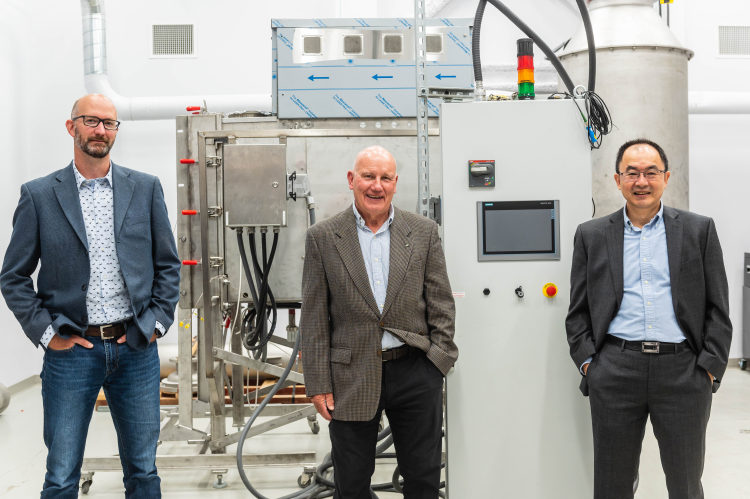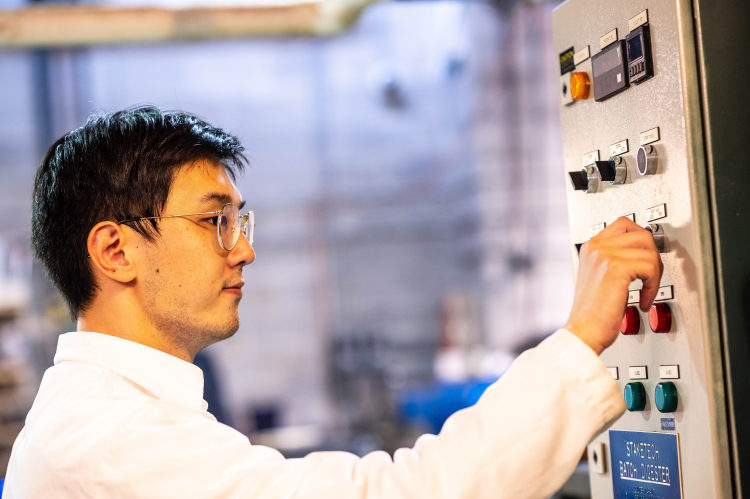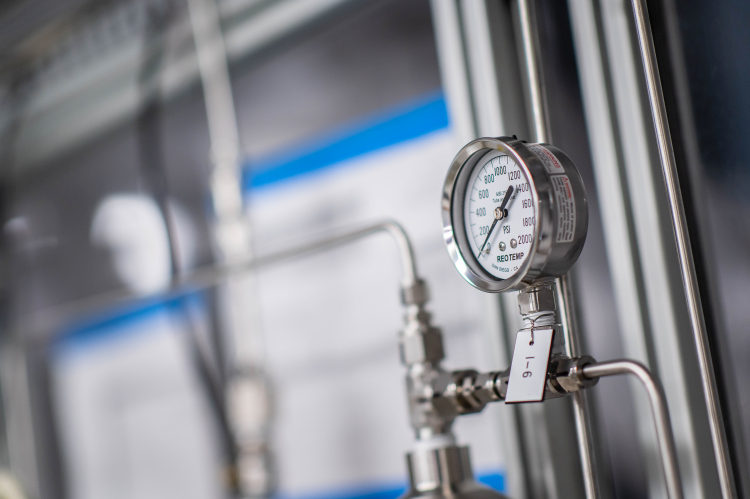A research and demonstration facility aimed at accelerating the development of low-carbon, market-ready bioenergy products and carbon-negative energy systems has opened its doors at the University of British Columbia.
 New UBC Bioenergy Facility Set to Pave Way for Carbon-negative Future
New UBC Bioenergy Facility Set to Pave Way for Carbon-negative Future

Article from | The University of British Columbia
A research and demonstration facility aimed at accelerating the development of low-carbon, market-ready bioenergy products and carbon-negative energy systems has opened its doors at the University of British Columbia.
Building on work conducted at UBC's Clean Energy Research Centre (CERC) over the past 15 years, the new Biorefining Research and Innovation Centre (BRIC) will bring together top academic researchers and industry partners to create leading-edge technologies that could significantly reduce our reliance on carbon-intensive fossil fuels.
With cost-effective clean energy alternatives, Canada will be better equipped to meet or exceed its target of achieving net-zero greenhouse gas emissions by 2050. Removing as much carbon dioxide from the atmosphere as is emitted — or even more — is key to advancing in the ongoing battle against global warming.

From left: Dr. Pat Kirchen, associate professor in the UBC Department of Mechanical Engineering; Dr. Jack Saddler, professor in UBC's Faculty of Forestry; and Dr. Xiaotao Bi, director of the UBC Biorefining Research and Innovation Centre
"There is enormous potential for biomass like BC forest waste to help meet both local and global renewable energy needs," says Dr. Xiaotao Bi, director of BRIC and CERC and a professor of chemical and biological engineering at UBC. "BRIC offers a unique opportunity not only to transform organic materials into low-carbon, high-value fuels and other bioproducts, but to do so at a demonstration scale in a virtually risk-free environment."
The global bioproducts sector will be worth an estimated $1.3 trillion by 2030. Yet the development of refined commercial bioproducts such as renewable natural gas, liquid biofuels and biocarbon has been hampered by a lack of proven, scalable processing technologies and inadequate policy support and incentives, says Bi.
BRIC aims to minimize the risks of bioproduct development by first assessing each candidate technology for technical effectiveness and economic potential. Then, in collaboration with partner companies, the UBC team will create prototypes and demonstrate their ability to produce first-class bioproducts at scale.

Dr. Adam Wu operating BRIC's biomass steam pre-treatment reactor system
The Centre’s projects will include:
-
advanced two-stage fluidized bed gasification technologies to convert forest, agricultural and municipal waste into low-carbon biofuels (e.g., a novel two-stage fluidized bed gasification pilot plant for future commercial-scale demonstration at a BC pulp and paper mill)
-
novel microwave-assisted fluidized bed catalytic pyrolysis technology to improve the quality of two intermediate products in the biofuel production process: bio-oil (a potential petroleum substitute) and biochar (a carbon sink, soil conditioner and reducing agent)
-
novel horizontal pulsating fluidized bed torrefaction technology that will produce second-generation (torrefied) wood pellets for energy-intense applications (e.g., power plants and metallurgical processing)
"By using biomass residues to their full potential, BC could cut greenhouse gas emissions by up to 15 per cent of its 2005 levels and its consumption of fossil fuels by nearly a third," says Bi. "The low-carbon and carbon-negative technologies that will be developed at BRIC will help Canada meet its 2030 and 2050 greenhouse gas mitigation targets and potentially reverse some of the environmental damage that has already been done."

The pressure gauge for a bio-oil and syngas catalytic conversion reactor system
British Columbia possesses many of the key elements for success in this area, including a skilled workforce, well-established forest and energy industries and globally renowned researchers, adds Bi. It also boasts strong support from the public and the provincial government, which implemented both a low-carbon fuel standard and the first broad-based carbon tax in North America in 2008.
The $8 million BRIC project is supported by the Canada Foundation for Innovation, the BC Knowledge Development Fund, Western Economic Diversification Canada and the UBC Faculty of Applied Science.
If your organization is interested in discussing a bioenergy-related project with UBC Applied Science, please contact us through our research page.
The content & opinions in this article are the author’s and do not necessarily represent the views of AltEnergyMag
Comments (0)
This post does not have any comments. Be the first to leave a comment below.
Featured Product

